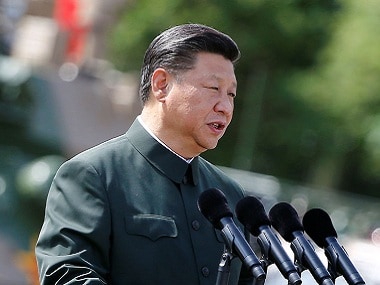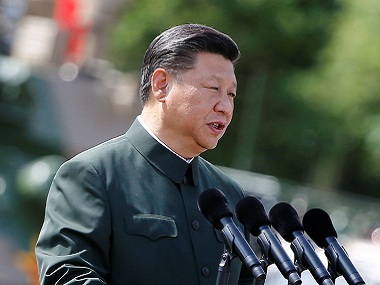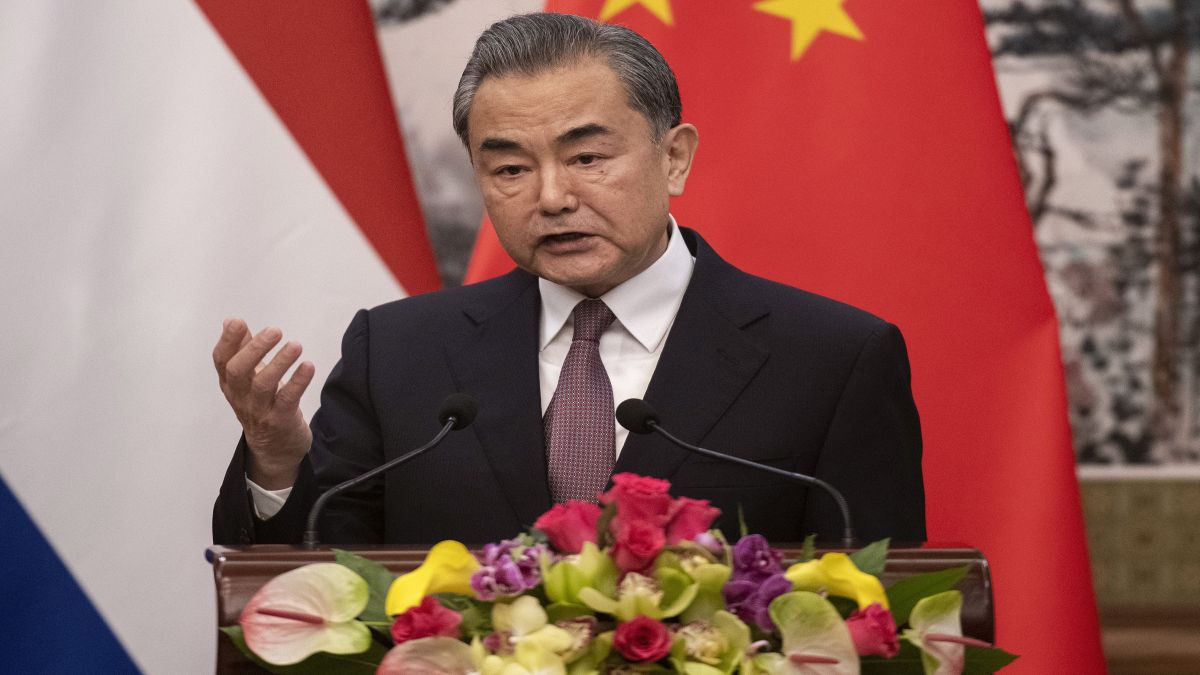As the “quadrilateral” genie re-emerges through a rub of the Japanese lamp, it is worthwhile looking at the modalities of a maritime security, defence collaboration and connectivity vertical rising among “like-minded democracies in Indo-Pacific” that places India at the very fulcrum. The quadrilateral, or just ‘quad’, is not a fresh idea. The strategic dialogue mechanism floated first by Japanese prime minister Shinzo Abe in 2006 was and remains reactionary in nature, designed to contain a revisionist China. If anything, the intervening years—after the ‘quad’ was jettisoned by Australia—have necessitated the concretisation of the plan. [caption id=“attachment_4195343” align=“alignleft” width=“380”]  File image of Chinese president Xi jinping. Reuters[/caption] Xi Jinping—whose actions are driven by a resentful reading of Chinese history and who envisions the beginning of a ’new era’ of Chinese global dominance—has amassed an extraordinary amount of power. The Chinese political system offers no effective checks or balances to prevent him from wielding it. The net result is a deep imbalance of power in Asia, the ripple effect of which runs wide and deep. In its rise as a great power with totalitarian characteristics, Xi-led China is rapidly upending the post-Cold War era equilibrium. Democracies around the world who have painstakingly put the rules-based order in place and have benefitted from it, see an existential threat in its rise. The Chinese menace isn’t just military or political, it is also philosophical. China is offering an alternative model of global prosperity which takes a shorter cut to growth through the avenues of authoritarianism and illiberalism. As author and strategic affairs expert Richard Bernstein notes in Chinafile, “We do need to remember that ‘Socialism with Chinese characteristics’ is a euphemism for one-party rule, pervasive censorship, the imprisonment of dissidents, and the subjugation of the judicial and media machinery to the dictates of the Communist Party. It’s the eradication of the idea of truth as something independent of political power.” The stakes have never been higher. The ‘free world’, led by the US, therefore feels an urgent need to develop a ‘deterrence and denial’ mechanism to thwart China’s strategic overreach and at the same time float a viable and sustainable model of growth to replace a Sinocentric paradigm that hinges on ‘predatory economics’, as US secretary of state Rex Tillerson recently said in a speech. That’s all very good in theory, but the problem lies in implementation. The concept of a ‘quad’ involving India, Japan, Australia and the US sounds a timely response to China’s revanchist policies. The nations have a great degree of strategic convergence and run on similar value-based systems that prioritise a “free and open Indo-Pacific”. But diplomacy isn’t context-free, and relationships between sovereign nations are never a zero sum game. Carnegie India director C Raja Mohan puts the dissonance in perspective in The Indian Express: “The fear of China’s growing unilateralism drives Asian nations to reduce the regional imbalance by banding together. But the attractions of doing business with China and the dangers of provoking it limit the impulses for collective action against Beijing.” The question for India, therefore, is how it will approach the mechanism. Will it be prudent to stay away from the ‘quad’? After all, Australia, a vital cog in the ‘free and open’ architecture in Indo-Pacific, bowed out of the dialogue in 2008 when an irate China pulled one of its many levers over Canberra. The UPA too buckled under Chinese pressure and kept Japan away from the annual Malabar exercise from 2007 to 2014. But the India of 2017 isn’t the one of 2008. The NDA has shown a greater urgency towards countering Chinese aggression in its backyard and is rapidly scaling up structures, partnerships and strategies to bolster maritime security. During the Doka La standoff, India showed admirable chutzpah in countering Chinese coercive threats with a denial-and-stalemate mechanism that may yet present a model for nations when threatened by the Asian hegemon. Yet the power asymmetry between China and India is so huge that unless India develops a partnership with ’like-minded democracies’ based on strategic convergence and similarity of purpose, the political and security implications for New Delhi are dire. The answer, therefore, must lie not in avoiding the ‘quad’ or seeing non-existent ’traps’ or ‘ghosts’ in the dialogue mechanism, but to make it work for India. This requires a degree of diplomatic nimble-footedness. India’s response to latest iteration of the ‘quad’ has been mature, when Japanese foreign minister Taro Kono proposed a joint dialogue between the US, India and Australia to ensure “free trade and defense cooperation across a stretch of ocean from the South China Sea, across the Indian Ocean and all the way to Africa” Ministry of External Affairs spokesperson Raveesh Kumar said: “India is open to working with like-minded countries on issues that advance our interests and promote our viewpoint. We are not rigid in this regard,” while clarifying that India is already part of several multilateral initiatives, and may “cooperate with countries with convergence but obviously on an agenda which is relevant to us.” This is a bold iteration of the policy. The need of the hour is for India to take part in a multilateral security and connectivity vertical to contain China’s coercive playbook, but India’s role cannot be reduced to a pawn in the great game between great powers. India should be ready to share the burden of responsibilities of such an alliance, but its role cannot be defined solely through the lens of burden-sharing. It need not view the ‘quad’ with non-alignment suspicion, yet the dialogue process—which is slated to kick off on the sidelines of East Asia Summit in Manila—should be conducted keeping India’s interests in mind. And India’s interest lies not in a policy of blind enmity towards China (that is unworkable, illogical and counter-productive) but in a flexible approach that alternates between assertion and cooperation in accord with circumstances, while simultaneously focusing on building sustainable partnerships with ’like-minded democracies’ to enhance force-structure capabilities and enforcement of rules-based order. It’s not a zero sum game.
And India’s interest lies not in a policy of blind enmity towards China (that is unworkable, illogical and counter-productive) but in a flexible approach that alternates between assertion and cooperation in accord with circumstances, while simultaneously focusing on building sustainable partnerships with ’like-minded democracies’ to enhance force-structure capabilities and enforcement of rules-based order.
Advertisement
End of Article


)

)
)
)
)
)
)
)
)



